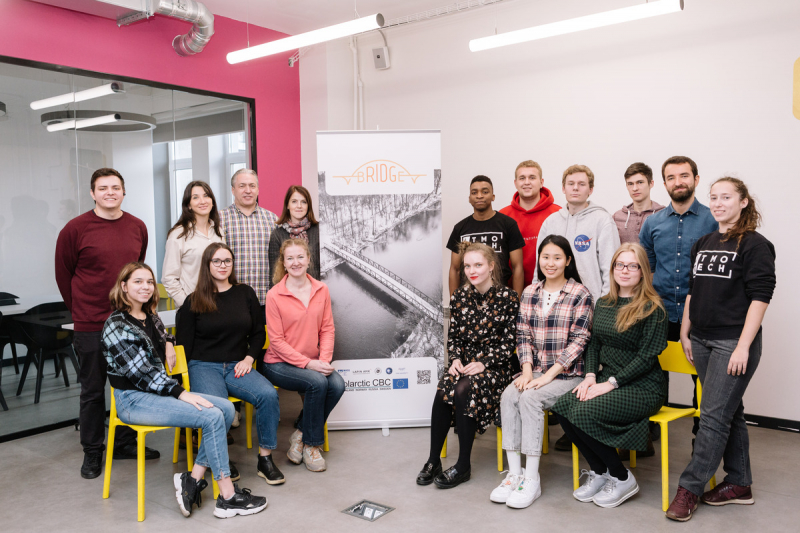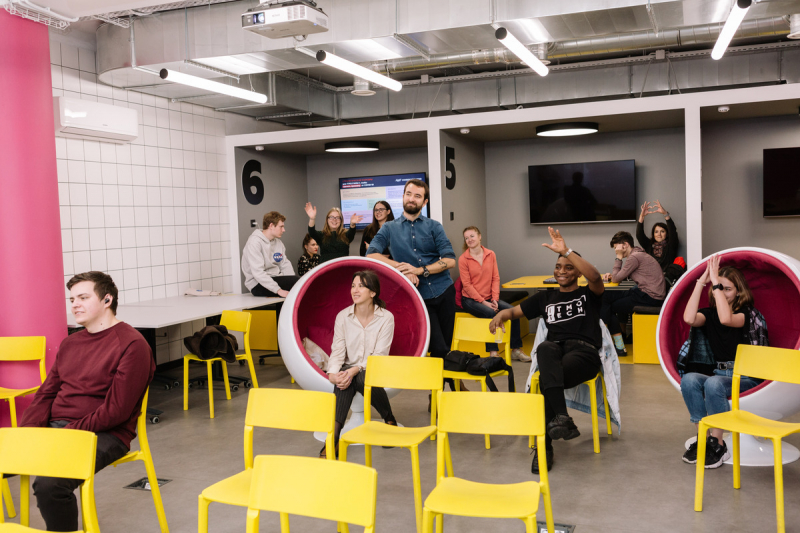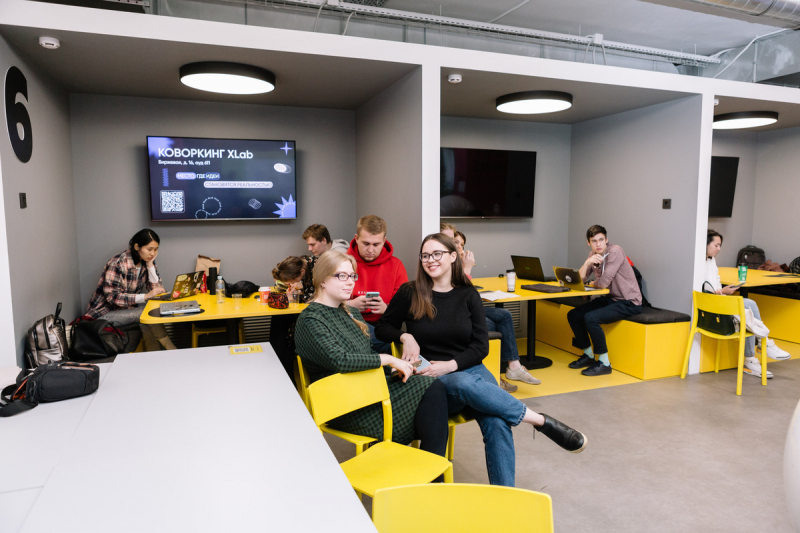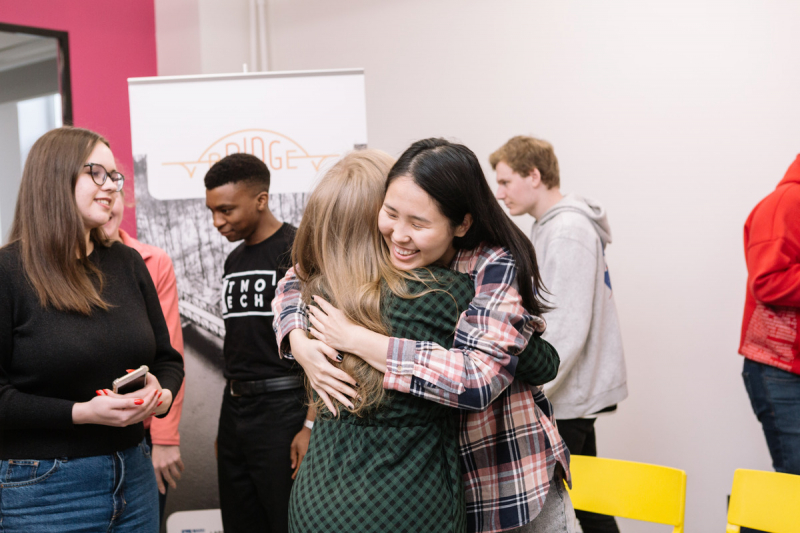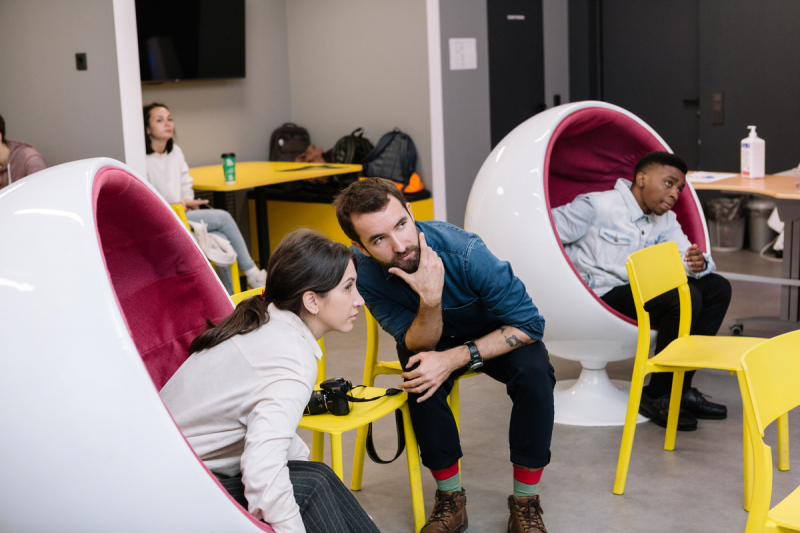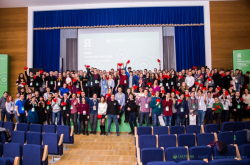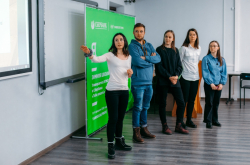Funded by the EU, Finland, Norway, Russia, and Sweden, BRIDGE brings together several universities in Scandinavia and Northwest Russia, including Arctic University of Norway, Lapland University of Applied Sciences, Murmansk Arctic State University, Petrozavodsk State University, and ITMO University.
The program centers on real-life cases provided by small and medium-sized businesses with an interest in breaking into a global market. The participants of the last session spent a month helping eight companies with their cases. The project offered students to collaborate with various businesses – from a floristry school and a travel agency to software and geoanalytics companies – as well as work on various tasks. Some of the tasks were to develop global marketing strategies, prepare an open lecture for teachers, develop a product, or promote a drone show.
As noted by Tatiana Tokareva, deputy dean of ITMO’s Faculty of Technological Management and Innovations, the organizers looked for partner companies among the university’s partners, as well as turned to ITMO Technopark and their personal ties. Among the possible candidates, preference was given to small and medium-sized businesses even though there were no strict criteria.
“Although our first priority were companies from the Northwestern Federal District, we looked at other Russian regions, too. For instance, we have participants from Yekaterinburg. We considered candidates from both small and medium-sized businesses but the latter had more chances to become part of our program. What was important for us is that solutions that were proposed by our students found their use at companies and fueled their growth. Corporations usually take collaborations with students quite seriously but are rarely in the first to adopt the new,” explains Tatiana Tokareva.
During a week of on-site events, participants had the chance to meet each other as well as the representatives of participating businesses, and attend three lectures. The issues of project management were covered by Igor Kuprienko, head of ITMO's Project Management Division. Natalia Lukovnikova, a former director of ITMO’s Research and Technology Foresight Center, spoke about the many methods of foresight, and Anton Gopka, dean of ITMO's Faculty of Technological Management and Innovations, delivered a class on innovative entrepreneurship with an emphasis on fundraising.
The program’s mentors and curators strived to create interdisciplinary teams to let each and every student show their strengths and contribute to their team’s success.
“We aimed for diversity. We wanted our teams to include various majors, be it engineering, marketing, or economics. On top of that, we wanted to involve students from all of ITMO’s faculties. It was essential for us that each person could bring their perspective into a joint project and in turn learn from others,” adds Tatiana Tokareva.
By being part of the program, students could not only acquire new skills and practice in solving business cases but also meet people from their fields and even get a job offer.
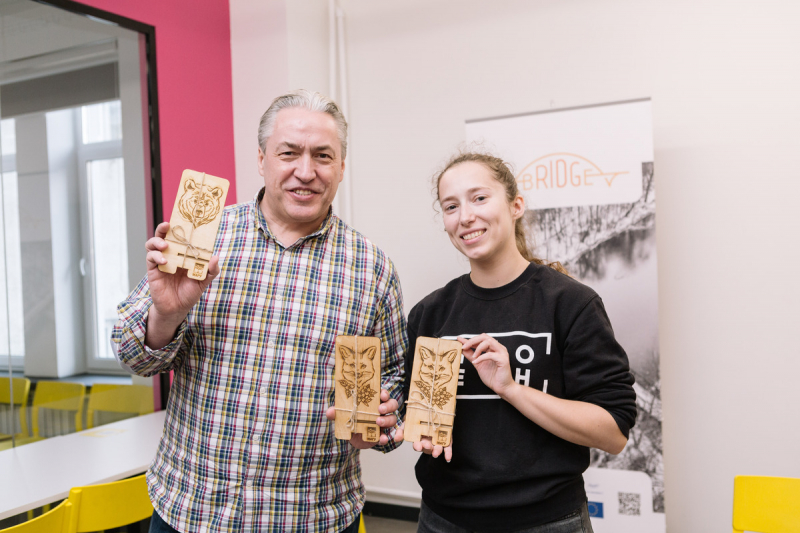
Igor Kuprienko (left) at the final session at ITMO University. Photo courtesy of Maria Bakina / Megabyte Media
“The purpose of this project is to introduce the concept of project-oriented learning to universities so that students could work on real cases before they graduate. It is beneficial for companies, too, as they can find their future employees. In the long run, all this will increase the demand for recent graduates on the labor market and help them find employment. With experience and new connections, it will be much easier for them to get a job,” says Igor Kuprienko, head of ITMO's Project Management Division.
He also adds that BRIDGE’s methods go in line with project-oriented learning, an approach that has been steadily adopted by ITMO University over the past few years. It allows students to not simply acquire knowledge, but put it to use right away by tackling business challenges and defending their decisions. In that spirit, the final task of the program was to present projects to an expert board of the university’s lecturers and business representatives. Thus, students could practice their presentation skills.
As a result, the expert board selected three student teams who proposed the most promising and interesting solutions. The first place was taken by a team that had to come up with new engaging teaching methods and design an open class using digital tools for the company Teachingame. Students who worked on a strategy for promoting tours to Russia for students in Scandinavian countries and the Baltic region were picked as runners-up. And the teams that worked on cases for companies Geoscan Group and Cofium – who proposed solutions for a drone snow and a deli store, respectively – shared the third place.
ITMO.NEWS talked to the students to learn more about what the project gave them and what they plan to do next.
Aleksandra Imekova
Second-year student of the Business Informatics Bachelor’s program, Faculty of Technological Management and Innovations
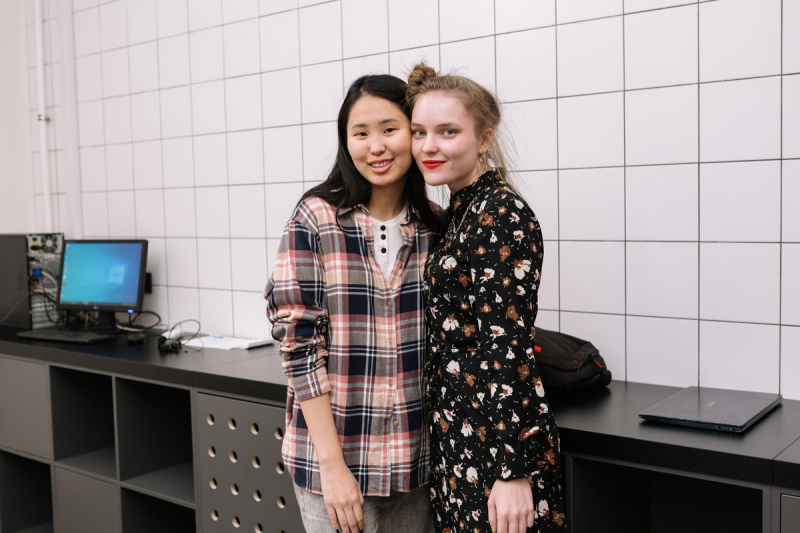
Aleksandra Imekova (left). Photo courtesy of Maria Bakina / Megabyte Media
I enjoy participating in different projects because I believe that this is an excellent way to bring your ideas to life, conduct research, come up with unconventional ideas, and, what matters to me most, find ways to make my thoughts a reality.
I’ve always been interested in education. I am from Ulan-Ude. I studied there and then went to Germany. I studied both offline and online. In my final year of school, I studied remotely. It was difficult for me to get much from Zoom classes and communicate with my teachers. I’m sure many experienced the same. It is quite a challenge to keep students interested and teach them when you’re not in the same classroom.
I want to use my past experience to make learning more interesting for a larger audience. So, when we had to pick our tasks, I went for the one from Teachingame in a heartbeat. Our team had to develop a tool that would make learning fun and engaging for students. To that end, we interviewed students and teachers from the Barents Region (Finland, Norway, Sweden, and Russia) and worldwide.
After giving it some thought, we worked out a short list of possible solutions for Teachingame and discussed them with the company's representatives. This meeting helped us narrow the list down to two key solutions. As a result, we came up with a few great prototypes: a soft skills game and a lesson plan with an interactive and practical focus.
I’m so happy that I decided to join the project. One of the greatest moments was a week of on-site events at ITMO when we had the chance to meet other participants. The speakers were great, too. I enjoyed the positive work environment that we had the entire time.
Daria Loza
Second-year student of the Digital Humanities Master’s program, Institute of International Development and Partnership
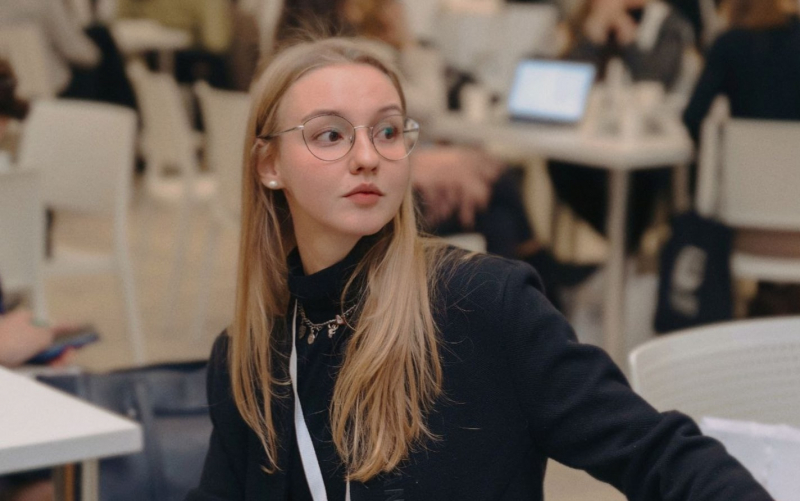
Daria Loza. Photo courtesy of the subject
I knew I was going to apply when I saw Geoscan on the list of the project’s partners. I have my Bachelor’s in geography and heard so much about this amazing company when I was at university. Besides, their drone-show case seemed rather interesting. Right now, I study cultural data and how it can be modernized, so this case was extremely close to what I’m doing. In my opinion, a drone show is one of the possible ways to do it, along with VR exhibitions and AR routes. I wanted to know how drones are produced and used, what current trends and difficulties exist in this sphere, and, of course, I was eager to work on real-life cases and gain the experience of participating in an international project.
Our case was devoted to the promotion of drone snows in the Middle East and Southeast Asia. In addition, I found the show’s format and the company itself quite intriguing. As my Bachelor’s thesis was about intercultural communication, I really enjoyed the opportunity to work with the Middle East market.
The key task was to get the contacts of potential partners and develop a promotion strategy bearing in mind all possible challenges, including problems related to transportation and registration, as well as the search for right venues with minimum noise, light, and electromagnetic pollution. We reached out to the key industry players and possible partners in entertainment and media. Our strategy was franchise-based because thus we could stake a permanent claim in the target countries and avoid problems with transportation and location scouting.
We offered various types of drone snows: from marriage proposals to announcements of new company logos. While working on our strategy, we drew on current trends in the industry, one of which is safety. Our strategy provides for a set of permanent venues, which are regularly checked to avoid any setbacks with the performances.
I had awesome teammates – all from various regions and universities. That’s what helped us work so smoothly and be creative. I learned a lot about team management and collaboration in other countries. It was also fascinating to delve into the subjects of service promotion and drone production. And I was especially pleased to cooperate with Geoscan and achieve such great results.
Ilya Chapyshev
Fourth-year students of the Robotics and Artificial Intelligence Master’s program, Faculty of Control Systems and Robotics
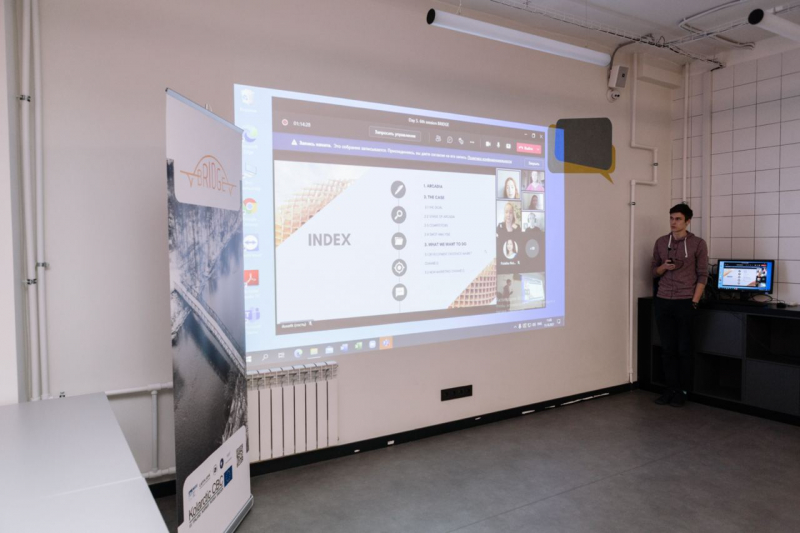
Ilya Chapyshev. Photo courtesy of Maria Bakina / Megabyte Media
When I was in my third year, I realized that robotics wasn’t my thing and focused on another field, namely startups. Now, I know how to test out hypotheses and ideas and even launch MVPs on my own. This interest led me to BRIDGE.
My team and I collaborated with Arcadia, an international tech company that develops custom software and IT products. I went for this B2B case because it was a new experience for me and I wanted to figure out how it all works. Our task was to develop a marketing strategy that would allow the company to enter the Nordic market. To achieve this goal, we had to go through a few more steps. First, for instance, we compiled a profile of our target audience, explored new promotion channels, created a business proposal, and so on.
It’s been a pleasure to be part of such a program. Thanks to this project, I practiced my English and met amazing people.
